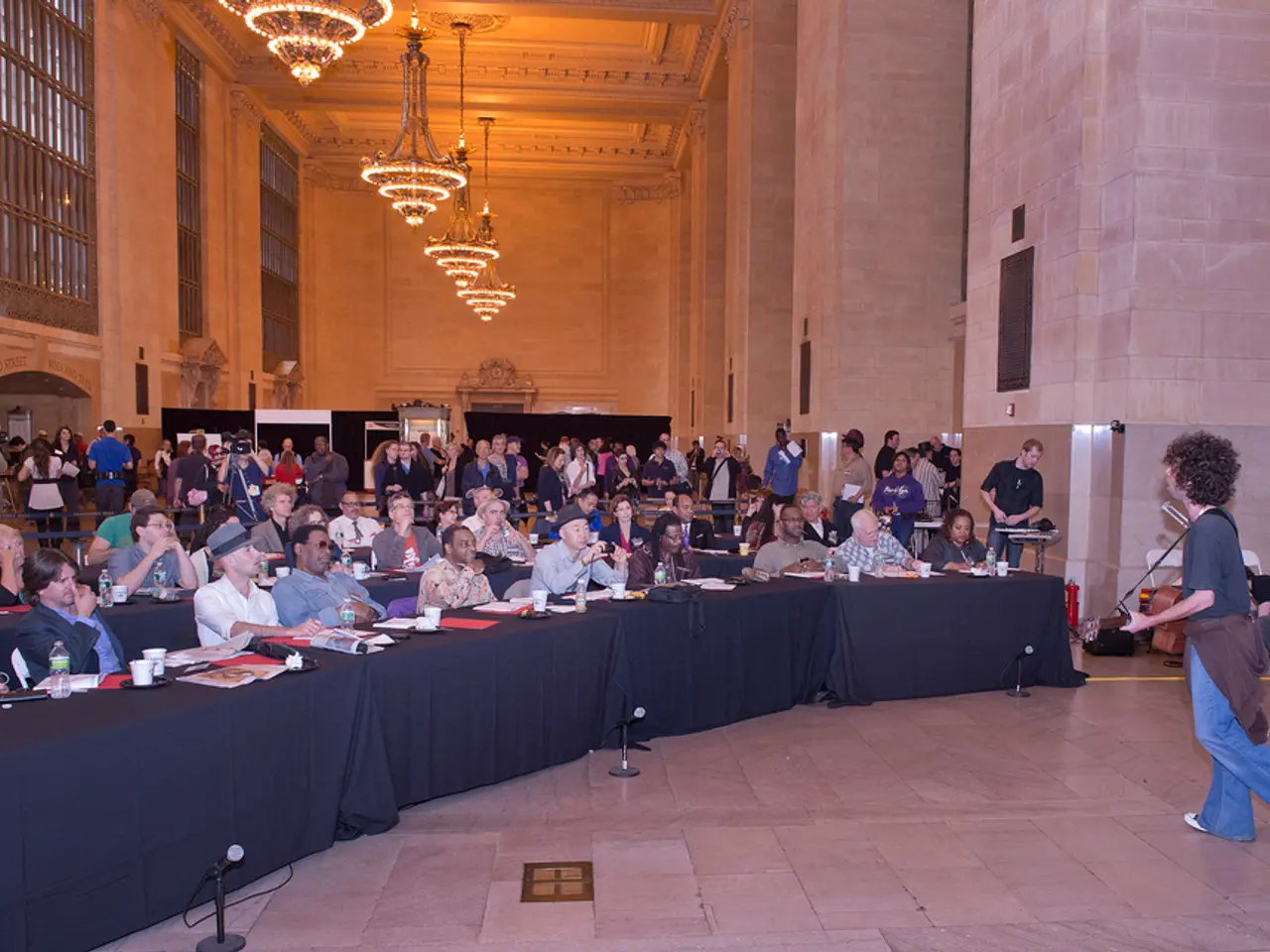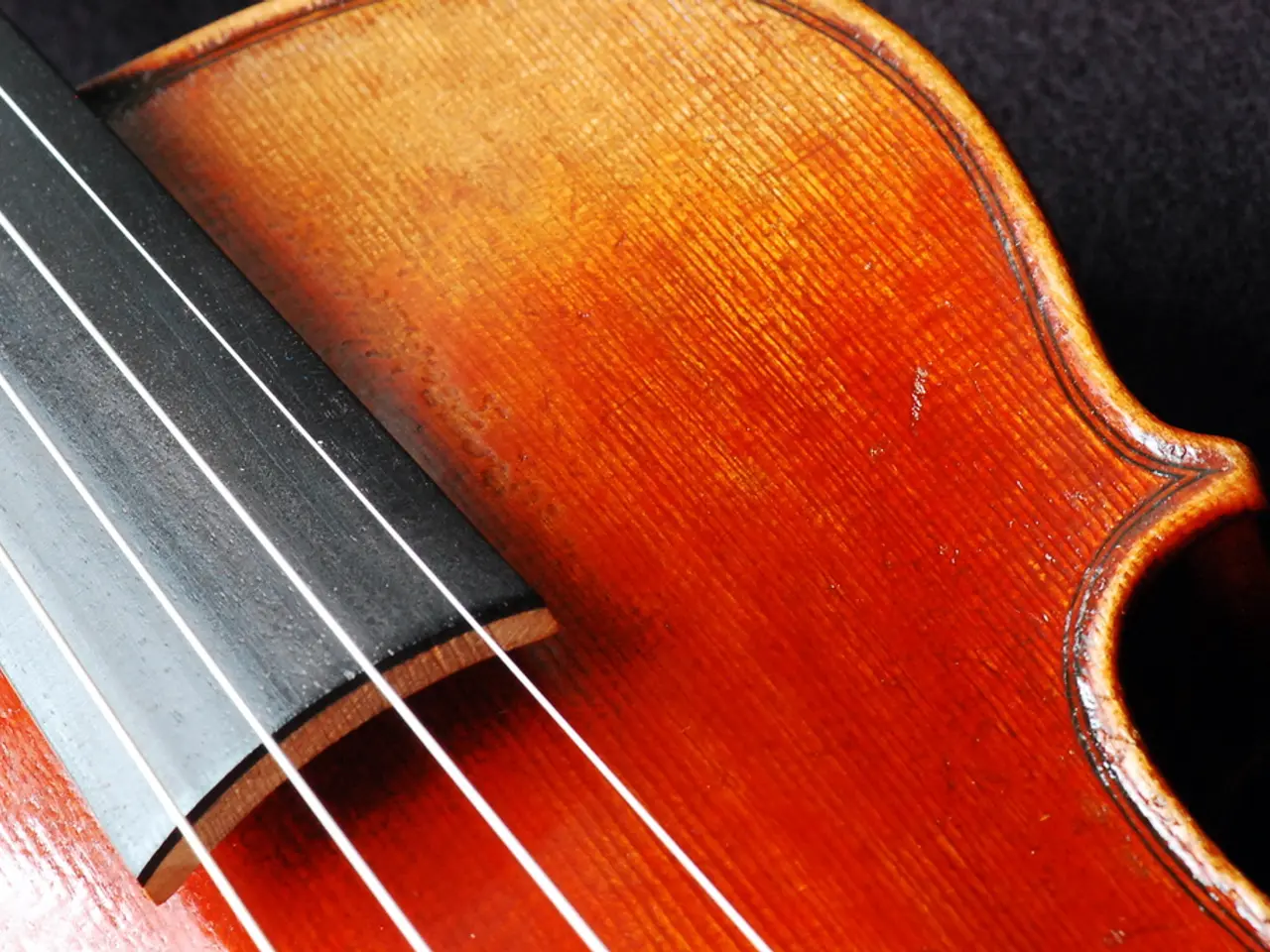Deteriorating Alliance: Poll Indicates a Majority of Japanese Citizens Perceive Their Relationship with the USA as Deteriorating
Since the second inauguration of U.S. President Donald Trump in 2025, there has been a significant shift in Japanese public views towards the United States and their alliance, a recent Nippon.com survey reveals[1].
The survey, conducted online by Nippon.com and JX Press in July 2025, gathered 1,042 valid responses from a random selection of monitors preregistered on JX Press's website[1]. One of the key findings is that nearly 70% of Japanese people believe ties with the U.S. have worsened since then[1]. This decline in favorability is reflected in Japan's security preferences: 41.7% of respondents now favor Japan working harder to defend itself, rather than deepening ties with the U.S. (24.7%) or mainly seeking partnerships with non-U.S. countries (33.7%)[1].
Politically and economically, the alliance under Trump’s second term has faced tension. The 2025 U.S.-Japan tariff agreement, a hallmark of the period, was marked by conflicting interpretations and lacked a jointly issued communiqué. While U.S. officials portrayed it as a victory, Japan disputed many claims, revealing friction in the economic-national interest dimension of the relationship[2]. Prime Minister Ishiba Shigeru, advocating for Japan's own policies, confronted Trump’s characterization of the alliance as “one-sided,” amid U.S. demands for increased Japanese defense spending to levels akin to NATO targets (3%-5% of GDP)[3].
Despite these strains, the U.S.-Japan alliance remains strategically central in the Indo-Pacific region. The alliance is described as crucial to counterbalancing China's rise, with Japan undertaking historic military budget expansions and shifting towards a more robust defense posture. Japan’s defense budget in 2025 reached a record $55 billion, aiming to become the world’s third-largest military spender after the U.S. and China[4]. Nevertheless, the political climate and public opinion reveal unease with Trump’s transactional and protectionist approach, which contrasts with Japanese leadership’s support for multilateralism and liberal international order[2][5].
In terms of demographics, respondents aged 70 and up preferred "ties with non-US partners" as their top choice (more than 40%). However, a gender gap was evident, with 28.5% of male respondents selecting "Deteriorated considerably," compared to 16.3% for female respondents[1]. The preference for self-defense increased with age, with more than 40% of respondents from their thirties to their sixties choosing this option[1].
The economy was seen as the area where the United States maintained the strongest influence, chosen by 59.7% of respondents. Interestingly, "IT/digital tech" was the area where the United States maintained the strongest influence for 5.6% of respondents in their twenties[1].
The survey results stand in stark contrast to a Cabinet Secretariat poll carried out in October and November 2024, which received an overwhelming 85.5% "going well" appraisal for Japan-US relations[1]. This discrepancy may be due to the relaxation of Trump's hard-line stance in the intervening period. However, the majority view was that Japan's relationship with the United States was headed in the wrong direction[1].
In summary, the survey findings suggest a noticeable deterioration in Japanese public opinion towards the U.S. alliance, accompanied by heightened Japanese desires for greater self-defense and diversification of security partnerships. Economically and politically, the bilateral relationship faces challenges due to tariff disputes and U.S. demands for higher Japanese defense spending, even as the alliance remains strategically important in a complex regional environment[1][2][3][4][5].
[1] Nippon.com. (2025). Survey Shows Japanese Public Views Toward U.S. Alliance. Retrieved from https://www.nippon.com/en/news/20250725/survey-shows-japanese-public-views-toward-us-alliance.html [2] Reuters. (2025). U.S.-Japan Tariff Agreement Sparks Controversy. Retrieved from https://www.reuters.com/article/us-usa-japan-tariffs/u-s-japan-tariff-agreement-sparks-controversy-idUSKCN23G23P [3] Kyodo News. (2025). Ishiba Confronts Trump Over One-Sided Alliance Claim. Retrieved from https://english.kyodonews.net/news/2025/07/7e85491c36e9-ishiba-confronts-trump-over-one-sided-alliance-claim.html [4] Nikkei Asian Review. (2025). Japan's Defense Budget Hits Record High. Retrieved from https://asia.nikkei.com/Politics/International-relations/Japan-s-defense-budget-hits-record-high [5] Japan Times. (2025). Japan Pushes for Multilateralism Amid U.S.-Japan Tensions. Retrieved from https://www.japantimes.co.jp/news/2025/07/25/national/japan-multilateralism-us-tensions/
- The survey results indicate a significant drop in the Japanese public's opinion regarding the U.S. alliance, with almost 70% believing ties have worsened since President Trump's second term.
- In terms of economic influence, the United States is still seen as the strongest in Japan, as chosen by 59.7% of respondents.
- The economy and politics have been areas of tension in the alliance under Trump's second term, with the U.S.-Japan tariff agreement encountering conflicting interpretations and lack of a joint communique, and criticism from Japan over U.S. demands for increased defense spending.
- The survey also reveals a growing desire for greater self-defense among the Japanese public, with 41.7% favoring Japan working harder to defend itself, and an increased interest in diversifying security partnerships.








